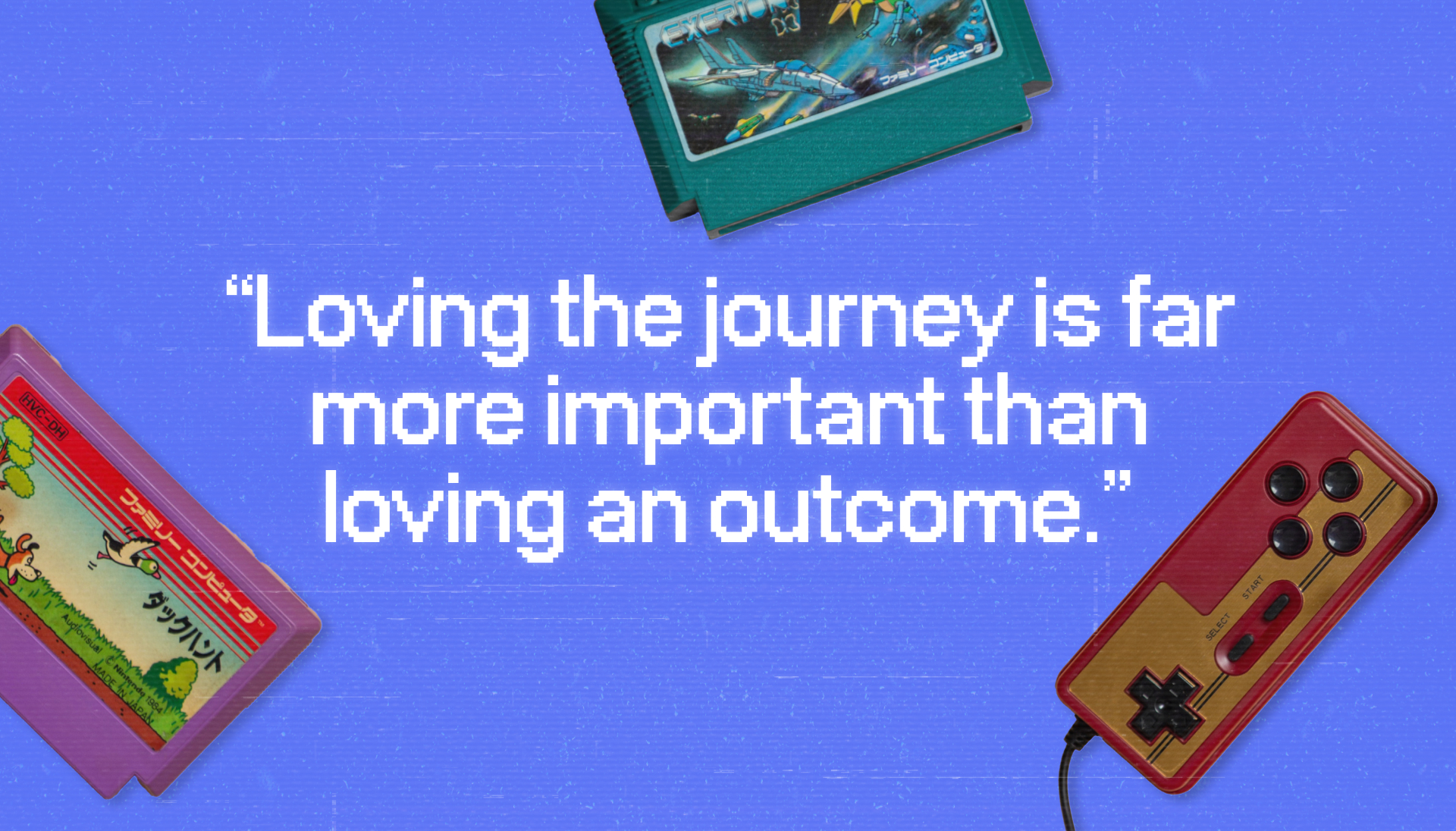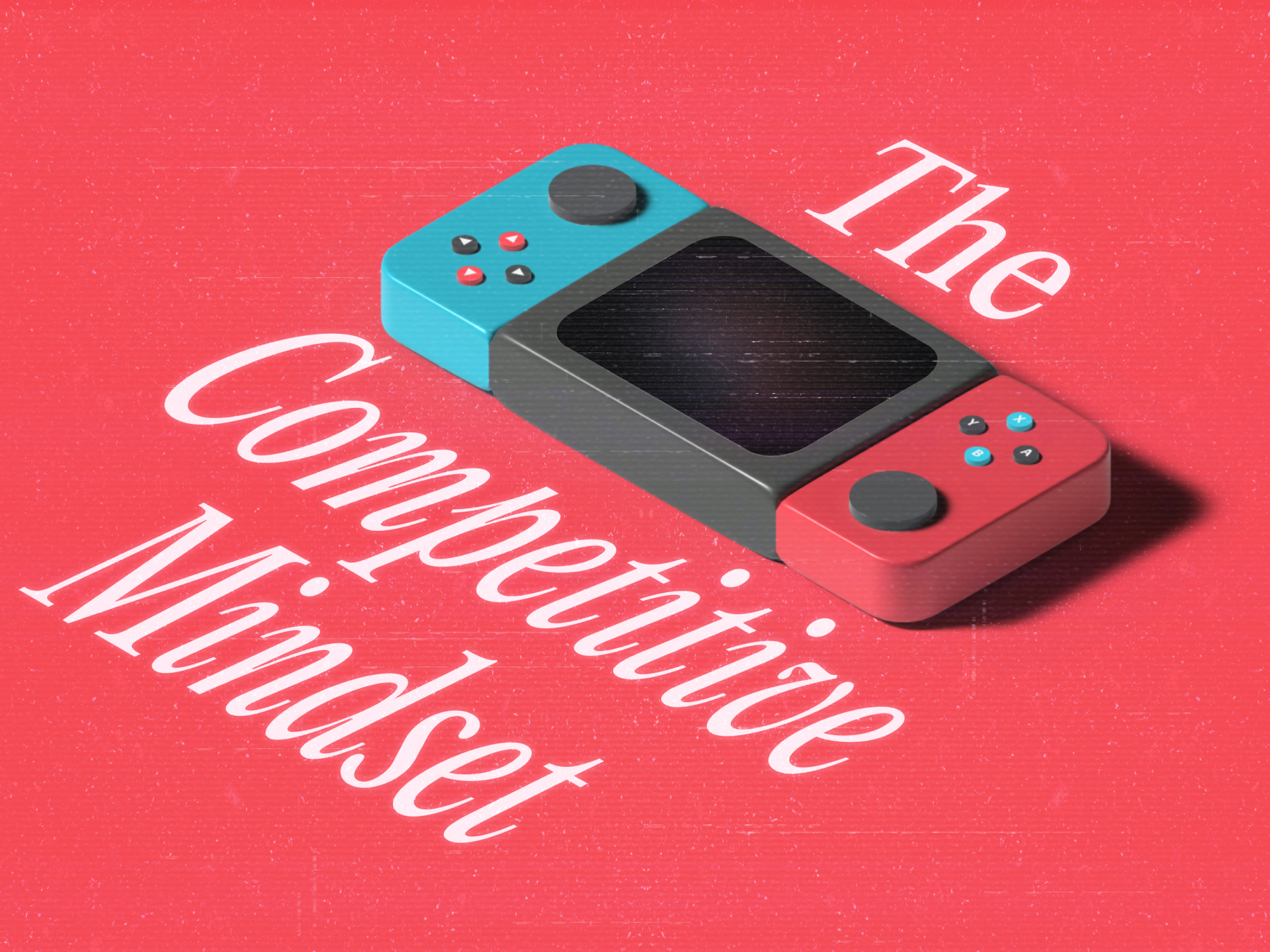The Competitive Mindset
September 20, 2023
Whether or not you grew up playing games in some way or another, the reality of competitive gaming influencing our working world has become all too relevant. The sub-culture around gaming as a competitive force comes very naturally to the competitive side of human social interactions.
If you've never rolled a 20-sided dice, lost sleep over a board game, or scrolled strategy guides online, you would be surprised by how much you share in common with those who do. While some positives can come from such a mindset, there are inherent limitations to be on the lookout for.
Very quickly about myself, I've been a student of gaming and business for as long as I can remember. My first tournament victory was at the young age of 13, having learned an immense amount about the camaraderie that surrounds the gaming industry from a group of Gulf War Veterans. Since then, I have been testing games, winning games, losing games, and losing sleep over whatever game took my attention at the time. It wasn't until I had my first two children that I began to see how many of the toxic aspects of competitive gaming have penetrated many people's minds.
Playing to Win vs. Playing to Grow
I find the concept of playing to enjoy the practice of competition itself has almost lost its place amongst the average person that I engage with. It has become almost anti-ritualistic to not "root to win" for a home team or the feeling of self-pity that comes from not winning an ultimate championship in whatever sport or game you are pursuing. The idea that we play a game to win at all costs, and this should consume our attention and focus, is far from how we should be viewing the act of competition.
We must step back and think hard about the human interactions that go into playing any game. We are facing an opponent who shares the same struggles for excellence that we do. It is with this shared journey that the door to bonding opens. Remembering this important component of the game is as important as any strategy to win. Knowing your opponent is one of the keys to succeeding at any competition, therefore undermining the human bond shared in competition is enough of a disadvantage as any other.
We often see this in professional sports today, as people care so much about the team they root for and leave little on the table of respect for other teams or players. Rivalry leads to hatred at times even. If Miyamoto Musashi inspired any single point in my journey of competitive gaming, it would be that any emotion clouds the path to success. Emotions come from the realm of extreme indulgence of one idea or another. Focusing on winning at all costs and losing the bond of competition with your opponent are easy paths to stress dominated mindsets. An assured path to toxicity and ultimately a lack of success while playing the game and how that game translates into your life.
Min/Max downsides
A lot of people have probably practiced the min/max strategy of playing games or conducting business far more than they have realized the toxic tactic itself. How many deals fell through because some stakeholder refused to budge on a profit margin? How many relationships ended because one side was taking and never giving? How many projects tied down in the details that matter more to a perfectionist than someone trying to ship an MVP? The concepts of minimizing risk exposure while maximizing output are as toxic as they are invisible in the moment of decision making.
A lot of attention falls on min/max in games that require long lasting decisions to be made. Planning a character in a role-playing game with the exact perfect blend of stats to get that extra point of output is really where this has become almost automatic in the minds of so many gamers. There is a huge misconception though when it comes to long term planning. How many of us can fall in love or find joy in making decisions solely on the basis of minimum risk and maximum output?
If we are talking about any project, game, relationship, or transaction that is going to stand the test of time in our minds, we need to find the elements of the action that drives our romantic desires just as much as we need to maximize an output.
Have you ever had that feeling of anti-climactic finishing? A lot of that comes from this pursuit of approaching a long road with such a limited care of our love of the journey itself. We fight a struggle along a road of hardship to get to an achievement, yet when we get there the achievement feels hollow. It is all too common and it starts with the fact that loving the journey is far more important than loving an outcome.

When we make every decision in life with the context of maximizing the final output while minimizing our pains along the way, we lose so much more on the journey itself. To recollect with friends about trials and tribulations shared ten years from now is what you will desire. No one shares a nostalgic moment about how success was slightly more efficiently achieved compared to the journey of struggle itself.
If you want to start a successful journey, it will take time to find that final destination. Loving the road is as important as the motivation behind the outcome. To get to the end of a struggle, the romance of our memories holds more pleasure towards the process itself rather than an extra margin of output.
Recency Bias and Capitalism
Let's get into a very real economic conversation around our consumer industry. Companies make no money when fans of products aren't actively purchasing. Therefore, the idea that the new thing is always better than the old is as real of an institution as it is an action of biased perspective.
There are times when the new thing is better than the old, and there are times when it is not. However, it appears that the ability to analyze either situation objectively is completely lost on many consumers. This shows its ugly head when companies are allowed to get away with providing a worse product for a higher price and harm the consumer along the way.
We have seen the concepts of artificial scarcity show up a lot in the recent years post-covid and this is a big part of the reasoning. Consumers are blinded to the value they receive given the new label on lesser quality products. It has shown up in most industries I have personally interacted with over the past few years, and I think we are starting to see consumers get wise to these toxic practices.
If consumers are only ever searching for new, and are unable to contribute value in the old stories of our past moments, it is an easy path towards diminishing value. Competitive gamers are always searching for that edge to victory. The idea that the newest strategy is always better comes at a significant cost compared to simply refining an old approach that can garner more sustained success over the ups and downs of your competitors.
Gambling Addictions
We are starting to see the impacts of a generational addiction to gambling right now. We have become desensitized to the idea of gambling, so much so that it has shown its face even in our school systems. Micro-transactions on mobile games and the ease of gambling on any sporting event have become so commonplace that we are almost unaware of the negative effects of a gambling mindset.
Gamification of school is not smart, I will stand by this point until I die. Let's discuss the real core competency when it comes to learning, it is the pursuit of learning itself. Let's grow a generation that loves to learn for the sake of self-growth. Learning out of obligation is as bad as learning out of positive reinforcement.
If we train a generation to engage with society solely based on a positive outcome, is that creating the inherent benefits of advancing the greater good? Is the greater good a concept relevant in a society completely addicted to the dopamine fix attributed to gambling on the transaction of the moment? The answers are ‘NO’; they are not.
Innocent applications of gamifying transactions have spiraling implications across industries. Look at professional sports and how consumers watch sports in 2023 compared to 2000. I remember watching sports as a teenager, and the depth of analysis was far more impressive to me back then. It seems that watching sports with friends has become a selection of scoring compilations rather than a deeper analysis of team tactics.
The toxicity of reducing your love for a game to show-stopping events is akin to limiting your brain's understanding of tactical prowess. If you want to get better at playing the game of life, you need to start paying attention to the minutiae of tactics at the lowest of levels first. Incentivizing the end result is the furthest thing from respecting the tactical elements of a competition. To love the act of growth needs to be the reward that is incentivized above all.
A knife stays sharp when it is scraped against a rock, not when it is cutting paper.
What a great game looks like
A great game, the concept lost to many, focusing on the toxic aspects of competition above all other denominations.
- Find someone who loves the origin story just as much as they love the final action sequence.
- Find someone who loves the process of losing as much as they love the final act of winning.
- Find someone who has a desire for struggle simply because they desire to learn.
- Find someone who finds joy in winning fairly above winning at all costs.
- Find someone who enjoys great stories of old times as much as they love new experiences.
- Find someone who can give as much as they receive and still stay friends.
At the heart of it all, a great game is more about the action of playing the game itself rather than winning. Pursuing this reality puts people around you who can stand the trials of life far better than those that do not. Life is struggle, embracing that struggle is at the heart of aspiration.
To be the best version of yourself requires the mindset that you will never be the best version of yourself.


